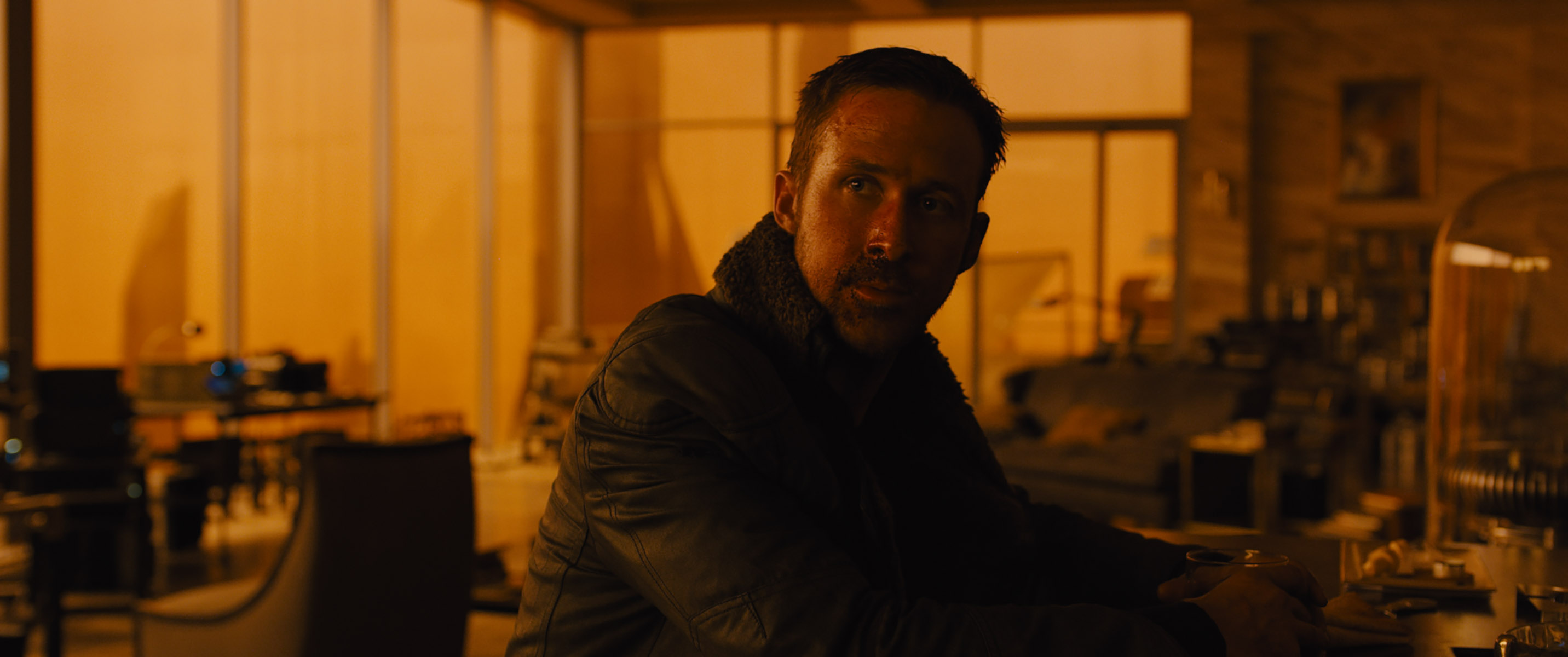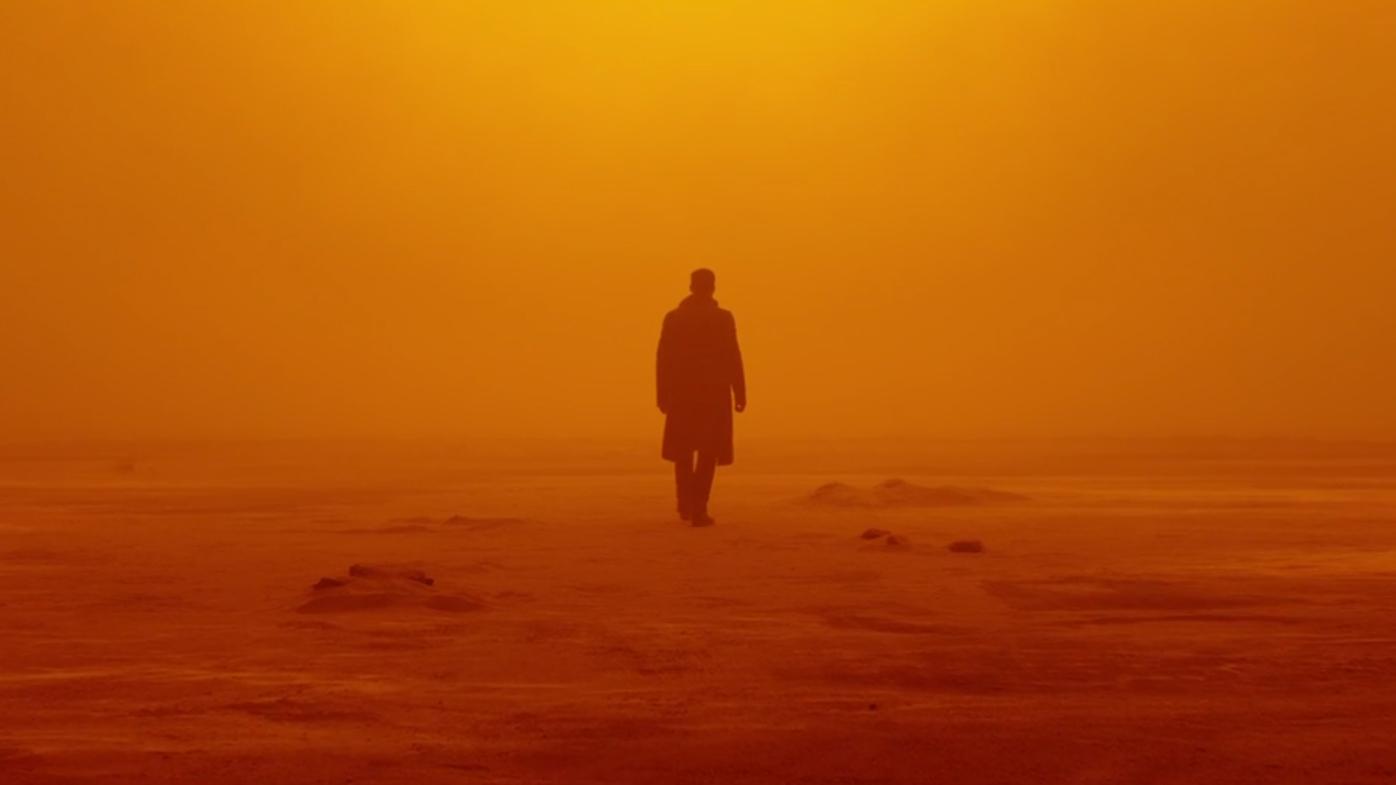Ridley Scott’s hypnotic futuristic thriller “Blade Runner”
builds to an incredibly poignant and surprising moment of empathy. Up until then,
the Replicants (artificial bio engineered androids meant to resemble humans and
perform slave labor) are painted as the antagonists. After a series of violent
rebellions, Replicant production is outlawed and any remaining Replicants are
to be hunted down and killed by cops known as Blade Runners. But during the
picture’s climax, atop a decrepit apartment building in dystopian Los Angeles,
Scott flips the script. We come to see the Replicants not as robots gone awry
but as naïve and tragically misunderstood beings that weren’t given a fair
shake.
From this perspective, Replicants aren’t just machines
created to be our servants but subjective beings with agency. Beings that are
capable of feeling love and compassion. Beings that can express free will and
have their own goals and individual aspirations. We come to empathize with them
just as we would a human trapped in an oppressive situation. In fact, we care more
about them than most of the human characters. In the film, humans are mostly
cold and wasteful beings who caused the planet to fall into a state of
dystopian chaos. They designed the Replicants to resemble themselves but outlawed
them the minute they began acting too human. This earth shattering, emotionally
touching shift in perspective and audience sympathy resonates throughout the
sequel “Blade Runner 2049.”
Directed by Denis Villenueve and scripted by Hampton Fancher
and Michael Green, “Blade Runner 2049” expands upon the original film’s
interests in the shaky ethical dimensions surrounding A.I. creation/use,
oppression, agency and empathy. And it manages to take these themes in a fresh direction
thick with theological allusions and thought provoking philosophical questions.
Among other things, the picture explores the nuances of artifice. In this
decaying, desolate future wherein synthetic organisms outnumber organic ones the
film asks us to question traditional notions of what’s authentic and “real.”
Can one machine be more human than another? Can a relationship between two man
made machines be just as authentic as a relationship between two humans?
“Blade Runner 2049” weaves together a complex mystery, at the
center of which lies a massive conspiracy that threatens to dismantle the
remnants of societal order. The narrative revolves around K, (Ryan Gosling) a
Blade Runner as he embarks on his latest case. As K unravels said conspiracy,
he begins to experience an identity crisis-- his identity and personal sense of
reality is jarringly called into question. The film is intense and
unpredictable. At multiple points during my viewing I thought I had figured out
the mystery and every time Villenueve proved me wrong. At the same time “Blade
Runner 2049” is deceptively dense. It’s a heavy philosophical drama wrapped in sleek,
visually lush neo noir that requires your undivided attention. Important clues
are scattered throughout every scene. Blink and you might miss something.
The picture moves at a glaciers pace. Villeneuve elegantly
eases us back into gloomy, dread filled world of “Blade Runner” and proceeds to
bask in every moment--every staggering shot of dreary overcrowded L.A., the
vast junkyards or the desolate ruins of once grand metropolises. In his films
(“Sicario,” “Arrival” to name a couple) Villenueve has never felt the need to
rush through his stories and here he lets us soak up “Blade Runner’s” haunting,
enigma rich atmosphere for (almost) three drawn out hours. Like its
predecessor, “2049” has an overwhelming sense of place; its dystopian sets feel
lived in and three-dimensional. There’s
a lot of ground to cover but Villeneuve takes his time the narrative never
feels hurried or convoluted and K is given ample time to develop into a
multidimensional character full of anxieties and burning questions.
I wish this review could be a little more specific but the
studio has asked all members of the press to avoid any potential spoilers. As a
writer and a critic it’s a little frustrating but at the same time a lot happens here. So, I’ll just leave
it at this for now: “Blade Runner 2049” is a beautiful and challenging film that
leads to a deeply touching and ambivalent conclusion.



No comments:
Post a Comment